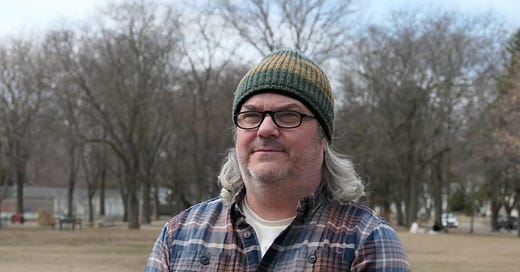"WE VIEW POSTS ON THIS WEBSITE FROM GOVERNMENT EMPLOYEES AS DISTINCT FROM PRIVATE CITIZENS.” - Gary Kay, Cargill to Minnesota Pollution Control Agency -- Do you agree?
"Environmentalists have long feared that Minnesota state regulators have been captured by local industry heavyweights — allowing big companies like Cargill and 3M to shape environmental policy in their own interests instead of the public’s.
But no one would accuse Derric Pennington, a conservation scientist hired by the Minnesota Pollution Control Agency last year, of being captured by industry, and by Cargill in particular."
Thanks, Minnesota Reformer and reporter Madison McVan, for reaching out to report on my experience. Hopefully, this will spur more public discourse on how society views free speech in the social media age. See the full article here: https://minnesotareformer.com/2025/04/07/cargill-complained-about-a-state-employees-social-media-activities-he-was-fired/
No longer are we left to advocate publicly through sending in "letters to the Editor," we can report on and editorialize immediately and publicly through our personal Bluesky Social, Substack, LinkedIn, X, Facebook, Instagram, Medium, blogs on personal websites.
Are we left to self-censor based on our own interpretation of who our potential public advocacy will "offend?" How do you know a priori? And should it matter, anyways?
Subject Matter Experts are often morally passionate about the subjects for which they are experts. It's why they spent all that time becoming "experts." Many of these experts work in Academia, Government, and the Private Sector. We need these folks to be able to share their expert opinion and insights on matters of public interest.
"The First Amendment protects individuals' rights to express their views and ideas freely, encompassing speech, writing, and other forms of communication. This protection applies to a wide range of topics including political, social, economic, educational, religious, and cultural matters. This right to free speech is fundamental for public discourse as it ensures a marketplace of ideas where different perspectives can be voiced, debated, and considered." Do you think LinkedIn would benefit from this?
As-is most of what is publicly posted on LinkedIn not about engaging in public discourse - especially with those who would disagree or question the original public post. LinkedIn posts are about marketing ideas just not debating them.
We need to remove the stigma around sharing ideas that differ from one's employer on Linkedin - especially given the purpose behind so many corporate posts on Linkedin is basically to serve as "commercials" to influence public opinions and greenwash. Experts, everyone, deserves to feel safe to respond with their own opinion publicly.
My personal narrative on my experience can be found on Substack https://lnkd.in/dTRtQrZq





